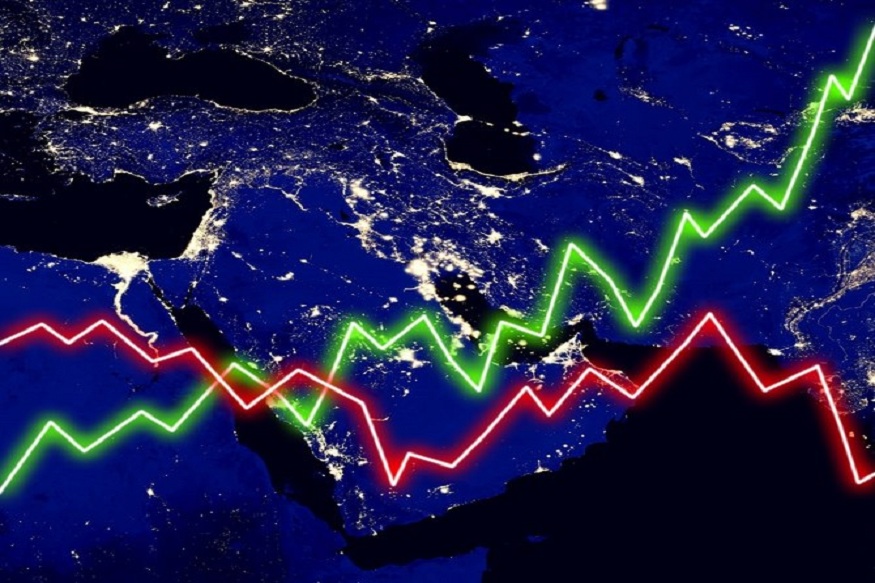The Gulf Cooperation Council (GCC) markets have long been a focal point for investors seeking exposure to rapidly developing economies underpinned by energy wealth. While oil and gas have traditionally dominated the investment landscape, real estate-linked equities have emerged as a compelling avenue for portfolio diversification.
These equities provide an indirect route to benefit from the region’s thriving property markets while maintaining liquidity and accessibility that direct real estate investments often lack. Examining the performance of these equities sheds light on potential returns, risk factors, and strategic opportunities for both regional and international investors.
Understanding Real Estate-Linked Equities
Real estate-linked equities encompass a broad spectrum of publicly traded companies whose business models are closely tied to property development, management, or investment.
This includes real estate development firms, property management companies, and Real Estate Investment Trusts (REITs). Unlike direct real estate ownership, investing in these equities allows investors to gain exposure to the property sector without the logistical challenges of managing physical assets. Market valuation, dividend yields, and corporate performance are influenced not only by property market dynamics but also by broader economic conditions and investor sentiment.
For those looking at specific investment options in the GCC, tracking the Dar Al Arkan share price provides insight into how development-focused equities reflect market trends and investor confidence.
These equities differ from traditional stocks in their sensitivity to property cycles, interest rates, and regulatory changes affecting the real estate market. Their inclusion in investment portfolios can enhance diversification, provide steady dividend income, and offer a hedge against volatility in other sectors.
Overview of GCC Real Estate Markets
The GCC real estate landscape is diverse and shaped by the economic priorities of individual member states, including the United Arab Emirates, Saudi Arabia, Qatar, Kuwait, Bahrain, and Oman. Urbanisation, population growth, and expatriate inflows have driven demand for residential, commercial, and mixed-use properties, particularly in cities such as Dubai, Riyadh, and Doha.
Government initiatives and policies have played a critical role in shaping market performance. For instance, visa reforms, property ownership regulations for foreigners, and large-scale infrastructure projects have all bolstered investor confidence. In the UAE, the introduction of long-term residency options and the Expo 2020 legacy developments contributed to a renewed demand for premium real estate.
Similarly, Saudi Arabia’s Vision 2030 initiatives aim to diversify the economy and stimulate the real estate sector through megaprojects and regulatory reforms. Understanding these dynamics is crucial for evaluating the performance of real estate-linked equities across the region.
Historical Performance of Real Estate-Linked Equities in GCC
Real estate-linked equities in the GCC have exhibited varied performance over the past decade, influenced by property cycles, oil price fluctuations, and broader economic conditions. Dividend yields have generally remained attractive, particularly among REITs and established development companies.
Comparisons with regional and global equity indices reveal that real estate-linked equities often provide lower volatility and steady income streams, making them appealing for risk-conscious investors.
Sector-specific performance varies widely: residential developers in high-demand urban centres have shown consistent growth, while hospitality and mixed-use sectors have been more sensitive to external shocks such as global travel disruptions. Investors must carefully analyse historical returns, price-to-earnings ratios, and dividend stability to gauge long-term prospects.
Factors Influencing Equity Performance
Several factors drive the performance of real estate-linked equities in GCC markets. Macroeconomic variables such as GDP growth, inflation, and interest rates directly impact property valuations and investor sentiment. Oil prices, which influence government revenues and economic stimulus capacity, can indirectly affect real estate demand and equity performance.
Regulatory measures, including land ownership laws, building codes, and taxation policies, significantly shape market conditions. For example, the introduction of more transparent property registration systems can enhance investor confidence and market liquidity. Market sentiment, influenced by both local developments and global investment trends, plays a crucial role in equity performance.
Geopolitical risks, including regional conflicts or international trade tensions, can also lead to short-term volatility, highlighting the importance of strategic risk management.
Comparative Analysis Across GCC Markets
Performance comparisons across GCC countries reveal notable differences in growth potential and market stability. The UAE and Saudi Arabia typically offer higher liquidity and more mature real estate markets, making them attractive for investors seeking both income and capital appreciation.
Qatar and Kuwait present opportunities in niche segments such as luxury residential or commercial properties, whereas Bahrain and Oman often exhibit slower, steadier growth but with lower volatility.
Examining historical cycles shows that markets with proactive regulatory support and diversified economic activity tend to sustain equity performance even during regional downturns. Conversely, markets heavily reliant on a single economic driver, such as oil, can see sharper swings in real estate-linked equity valuations.
Conclusion
Real estate-linked equities in GCC markets offer a unique blend of growth potential, income generation, and portfolio diversification. While performance varies across countries and sectors, investors who understand market dynamics, regulatory environments, and emerging trends are better equipped to make informed decisions.
With strategic allocation, attention to risk management, and careful monitoring of both local and global factors, real estate-linked equities can play a significant role in building a resilient investment portfolio in the GCC region.




